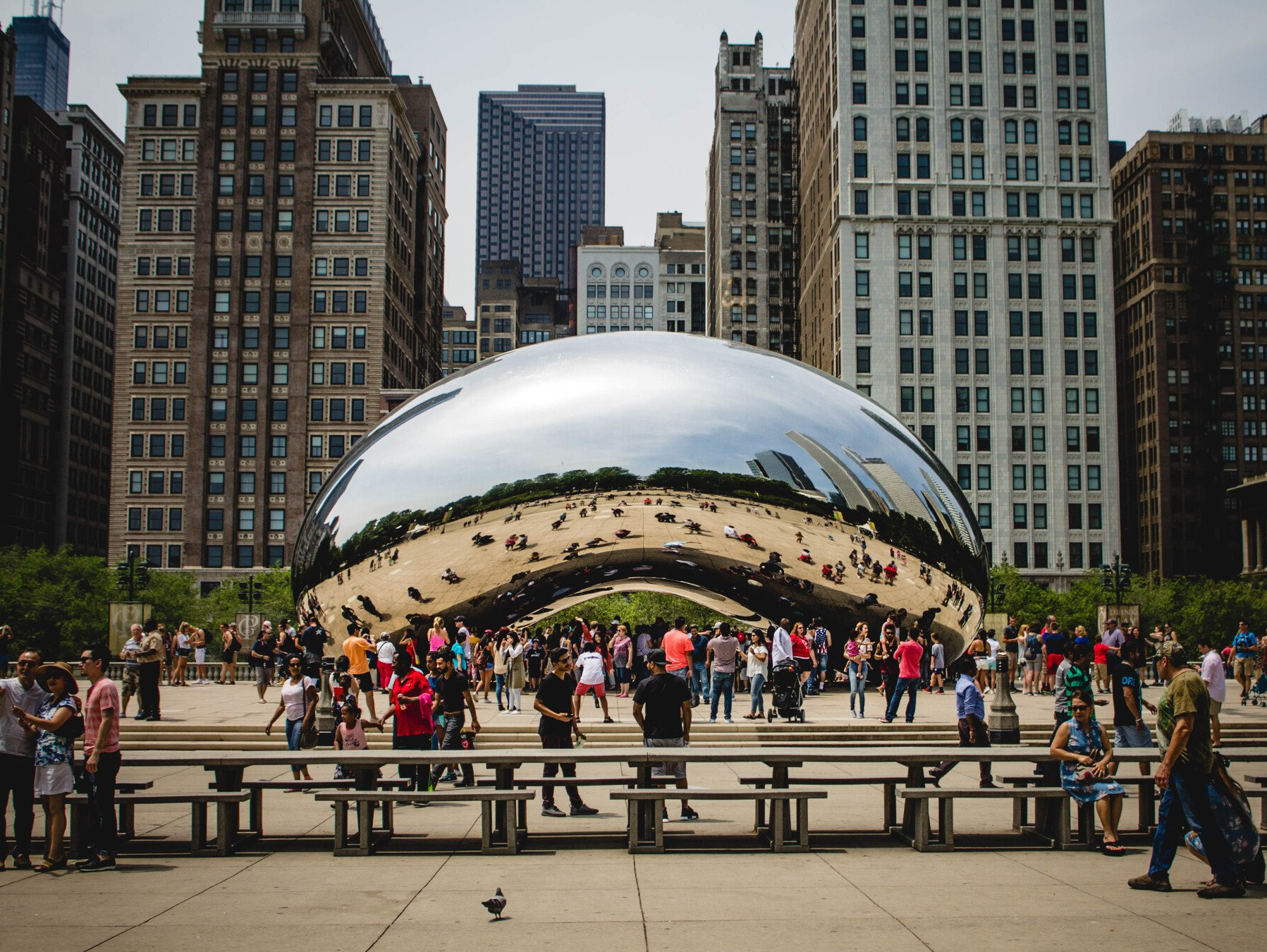Uber & Lyft Accidents
If you or your loved one suffered loss in an Uber or Lyft accident, our qualified attorneys want to help you secure justice. Call The Law Offices of Haytham Faraj at 312-635-0800 (Chicago) or 323-902-0730 (Los Angeles) to schedule a free, no-obligation consultation to learn of your rights and options for compensation today.
In increasingly congested cities, getting around can be difficult, time-consuming, and expensive. But with the rise of ridesharing companies, such as Uber and Lyft, more people now have access to transportation options that are both readily available and competitively priced.
Despite the great advantage of ridesharing companies however, daily reports increasingly show that the impact has not all been positive. These companies, epitomized by Uber and Lyft, have not necessarily taken a responsible approach to their technological innovation, thereby creating situations that put people in danger.
Daily, there are new reports of Uber and Lyft drivers who, while rushing to pick up another fare so they can meet their daily target, drive dangerously, ignore traffic rules, and ultimately create life-threatening situations for other road users. In many cases, these situations cause severe injury to victims of Uber and Lyft accidents; while in some cases, they lead to avoidable deaths and permanent loss.
At The Law Offices of Haytham Faraj, our experienced Uber and Lyft accident attorneys routinely receive and investigate complaints by people who were victimized in these accidents. Technological innovation helps create better, more comfortable lives for people all around the world. But it should never come at the cost of public safety or the lives of our loved ones.
If you or your loved one suffered loss in an Uber or Lyft accident, our qualified attorneys want to help you secure justice. We would like to help you hold these big corporations accountable and recover the compensation that lets you move on with your life. Call The Law Offices of Haytham Faraj at 312-635-0800 (Chicago) or 323-902-0730 (Los Angeles) to schedule a free, no-obligation consultation to learn of your rights and options for compensation today.
Free Consultation
We will get back to you as soon as possible.
Please try again later.
The Rise of Uber and Lyft
Amongst ridesharing companies around the world, Uber and Lyft are two of the earliest, and consequently, amongst the biggest in the world today. Established in 2010, Uber introduced an idea that was revolutionary at the time – a way to secure transportation without having to wait on a busy sidewalk or at a cold bus stop.
The company introduced ease and convenience into the idea of daily commuting, even allowing people to car-pool, thereby allowing vast reduction in commuting costs. Yet, it did all this without owning a single car, bus, truck, or SUV. By allowing people to provide ride-hailing services using their own personal vehicles, Uber could focus solely on linking people who want to provide a ride with people who need a ride. This way, riders do all the transportation while Uber moderates its app and makes money hand over fist.
Uber became so successful and popular that other companies began to mirror their company model. In 2012, Lyft launched in San Francisco, using essentially the same structure as Uber, but with a few modifications. One of the most notable differences is Lyft drivers are required to put a pink moustache at the front of their vehicles, which differentiates them from other ridesharing companies like Uber who don’t have any identifying detail.
Today, Lyft and Uber are very successful. Uber, in particular, has spread to multiple countries around the world. As of 2020, Uber was active in more than 93 countries around the world, with over 75 million active drivers and more than $12 billion in gross bookings for a single quarter. Further, statistics indicate that 25% of Americans use Uber at least once a month.
While this popularity has resulted in a successful business model, Uber, Lyft, and other ridesharing companies have become subject to numerous complaints.
Uber and Lyft Complaints
When ridesharing companies were first introduced, the social case for their introduction was that they would help reduce road congestion, accidents, and death. Since more people would be able to access safe driving, especially in situations such as driving home after a night out, there would be less incidents of drunk driving and other irresponsible driving.
However, research has indicated quite the opposite. According to a study conducted by experts from the University of Chicago and Rice University, the start of ridesharing is linked to a 2%-4% yearly rise in motor vehicle fatalities across the US. The experts found that while the number of motor vehicle accident deaths in the US stood at 32,885 in 2010 (the lowest since 1949), that number had risen to 37,400 by 2016. This correlates to a roughly 3% increase in deaths year over year – or the equivalent of about 987 more deaths each year.
Even more than the deaths experienced, ridesharing companies, including Uber and Lyft, are routinely implicated in thousands of complaints, including by people who suffer severe injuries in these accidents. Ridesharing companies have contributed to congestion in cities around the world. These situations have largely been created by drivers who refuse to abide by the rules of the road, thereby road incidents that victimize other road users.
Uber in particular has come under fire for its failure to adequately screen drivers. While Uber requires its drivers to undergo background checks in some cases, use vehicles that are no older than 10 years, and carry insurance, these measures are arguably insufficient. Uber does not require its drivers to possess commercial licenses, meaning they are held to a lower standard of conduct and qualification. This results in drivers who may not be qualified to operate a vehicle, much less carry passengers along busy city roads.
These companies have also come under fire for their treatment of their drivers. One of the reasons why Uber, Lyft, and other ridesharing companies have disrupted the public transportation industry is because of their affordability. But in many cases, they are only able to offer such low fares because they don’t always treat their drivers well. Uber and Lyft drivers, for instance, earn less than minimum wage in certain locations.
Uber has also been implicated in making false claims about how much drivers can make in certain areas. In 2017, it was forced to pay out $20 million to settle a claim brought to challenge its conduct on this account. However, the fallout of these misleading claims impacts more than just the livelihood of these drivers. Research indicates that drivers spend between 40%-60% of their time looking for passengers (a practice called “deadheading”). This means they are under more pressure to meet daily earning targets, which can lead them to take risks, drive dangerously, and put people in harm’s way.
Claims for Uber and Lyft Accident Victims
Due to the incredible danger that ridesharing drivers often create for other road users, many municipal authorities are taking a sterner approach to these companies. Under Chicago’s Transportation Network Provider Rules, for instance, ridesharing drivers must meet certain regulations:
They must take an online course specially designed for commercial driving before they can begin to operate a vehicle;
They must obtain a special chauffeur’s license before they can accept rides in Chicago;
Their vehicles must be no older than 6 years’ old; and
Vehicles older than 6 years’ old must undergo semi-annual inspection
Where any Uber or Lyft driver causes an accident, and it is clear they have failed one or more of these regulations, they can be held accountable. In addition, if you have been injured, lost a loved one, or suffered loss in any way due to an Uber and Lyft accident, you may have a right to compensation.
You are allowed to file a personal injury claim if you were victimized in these accidents in any way. To learn how the law affects your rights to compensation and the options available to proceed, call our experienced Uber and Lyft accident attorneys for help.
Collecting Compensation After an Uber or Lyft Accident
The business model of ridesharing companies and how they classify their riders makes the process of collecting compensation tricky. Uber and Lyft classify their riders as “independent contractors”. This means that these companies will not necessarily take responsibility for the actions of drivers, because they are deemed to be independent businesses all on their own.
However, it is possible to collect compensation, both from ridesharing companies and the errant driver, if you are injured in an accident. But how much compensation you can collect, who you can collect compensation from, and how, will vary depending on the circumstances surrounding your accident.
When the app is off:
If an Uber or Lyft driver causes an accident that injures you when they are not logged in to the app, they are deemed to be solely responsible for the accident. This means you can only sue the driver for compensation, and not Uber or Lyft. Most ridesharing companies, including Uber and Lyft, require drivers to carry insurance. However, there are often issues here regarding whether the insurance in question provides commercial or personal coverage. Generally, personal policies will not apply if the vehicle was being used for commercial purposes at the time of the accident.
When the app is on and the driver is deadheading:
Where the rider is logged on to the app but is between fares, both the ridesharing company and the rider will be liable. This means you claim against the driver, and then Uber or Lyft. However, both Uber and Lyft have capped the extent of compensation they will provide here. The limit of the coverage is $50,000 for bodily injury or $100,000 per accident, and $25,000 for property damage.
When the app is on and the driver is on a trip: Finally, if the app is on and the driver is carrying a fare or heading to pick them up, both Uber and Lyft will be responsible. But in this case, coverage minimums from Uber and Lyft are usually up to $1 million.
Determining when either of these situations apply may be difficult, and actually collecting the compensation you deserve will often be another ball game entirely. To ensure you have the best chances for compensation, speak to a skilled Uber and Lyft accident attorney today.
Call Our Uber and Lyft Accident Attorneys for Help
If you or your loved one was hurt in an Uber or Lyft accident, you can pursue the responsible parties for justice and compensation. Our experienced Uber and Lyft accident attorneys at The Law Offices of Haytham Faraj are ready and available to hear your story and help you start the process of recovering compensation. Contact us today to get started.
Claim What You Deserve
Book A FREE Consultation
About Us
Copyright © 2021 The Law Offices of Haytham Faraj. All rights reserved.



